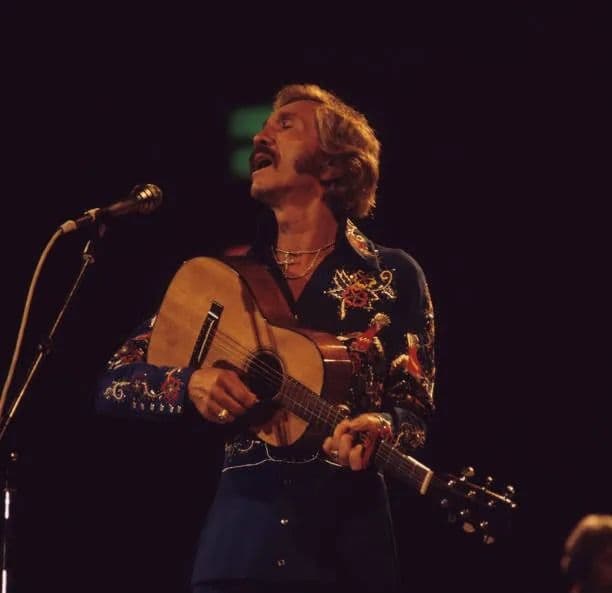
A Midnight Ritual of Heartache and Regret
When Marty Robbins released “Smokin’ Cigarettes And Drinkin’ Coffee Blues” (often titled Cigarettes and Coffee Blues) in 1963, it quietly climbed to #14 on the U.S. Country chart, while also peaking at #93 on the Billboard Hot 100. Issued as the B-side to the single Teenager’s Dad on Columbia Records, the song is now preserved in retrospectives such as The Essential Marty Robbins 1951–1982.
In the warm hush of Robbins’s tenor, “Smokin’ Cigarettes And Drinkin’ Coffee Blues” tells an intimate story of a man left restless by heartbreak. There is no showy guitar showdown, no climactic chorus of resolution — instead, there is the quiet company of bitter habits. He walks alone at night, unable to sleep, replaying memories in a loop of loss. The cigarettes and coffee are more than tokens of insomnia; they are his sole solace and his punishment.
Lyrically, Robbins constructs a scene heavy with isolation: sitting at “our favorite spot,” carved with his lover’s name, he listens to the juke box play sad songs that echo his own longing. The imagery of the table, the carved name — small, tender, irreversible — underscores how deeply this love imprinted itself on him. This is not just a breakup; it is a presence left behind, haunting in every ritual he performs.
The motif of cyclical suffering is central. The refrain, “Smokin’ cigarettes and drinkin’ coffee all night long… Wondrin’ how a love so right could suddenly go wrong,” betrays a man repeatedly returning to the same grief, unable to move past his memories. Robbins’s choice of mundane vices — rather than melodramatic sorrow — gives the song emotional honesty. He does not reach for dramatic metaphors. His pain is ordinary, textured, lived in the midnight hours when the world is still.
What makes this song enduring is the universality of its ache. Robbins doesn’t claim to have unique suffering — he acknowledges that “I bet there’s a lot of people know the misery I go thru.” That admission connects his solitude to a shared human experience: the countless lonely souls who, in the dead of night, reach for a coffee cup or a cigarette to keep the emptiness from swallowing them whole.
Musically, the song is spare — the arrangement supports rather than competes with Robbins’s voice. The production, credited to Don Law and Frank Jones, frames Robbins with gentle restraint, letting the emotional weight of his words resonate. The instrumentation — soft piano, subtle drums, and muted guitars — feels like the late-night corner booth where he sits, a space suffused with memory and regret.
Culturally, “Smokin’ Cigarettes And Drinkin’ Coffee Blues” occupies a quiet but significant place in Robbins’s catalog. It is not one of his Western epics or his dramatic ballads, but rather a moment of vulnerability — a confession in low light. Over time, it has become a touchstone for listeners who appreciate Robbins’s ability to convey heartbreak not with grand gestures, but through the small, repetitive rituals of grief.
In the end, the song feels less like a performance and more like a private monologue — a late-night whisper from a man as human as any of us, caught in the grip of longing and loss, seeking solace in smoke and caffeine. It is this emotional sincerity, wrapped in simple but powerful imagery, that makes “Smokin’ Cigarettes And Drinkin’ Coffee Blues” one of Marty Robbins’s most haunting and honest works.